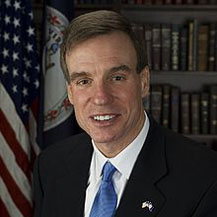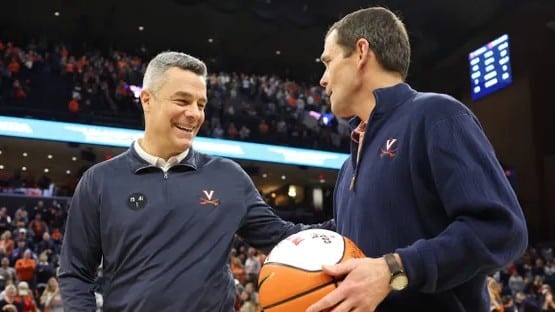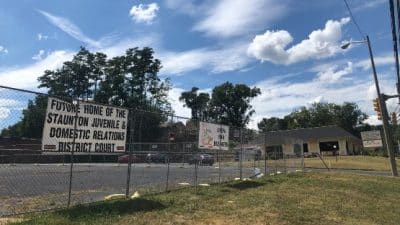
The Healthy Food Access for All Americans (HFAAA) Act would benefit low-income rural and urban communities that have limited or no access to nutritious food by providing incentives to food service providers such as grocers, retailers, and nonprofits who expand access to nutritious foods in underserved communities.
“Families in Virginia must be able to count on reliable access to healthy and affordable foods no matter where they live,” said Sen. Warner. “This legislation will increase the availability of dependable nutritious food for more than one million Virginians, and support grocery markets and non-profits in their efforts to serve the communities that need them the most.”
“Living in the breadbasket of our nation, it is easy to forget that chronic hunger is still prevalent in many of our own communities,” said Sen. Moran. “It is estimated that food insecurity threatens nearly 1 in 6 Kansans, and yet many grocery stores in both rural and urban communities are struggling to stay open. Our bipartisan Healthy Food Access for All Americans Act would incentivize food providers to establish and renovate grocery stores, food banks and farmers markets in communities that traditionally lack affordable and convenient food options. All Kansans and Americans, regardless of where they live, deserve access to healthy food.”
“On behalf of the seven regional food banks serving the Commonwealth, I want to thank Senator Warner for his leadership on the critical issue of food access. 900,000 Virginians live with the uncertainty that they may not be able to afford enough nutritious food throughout the year. Food deserts disproportionately impact low-income communities, creating additional barriers for our neighbors to achieve healthy, productive lives. This legislation is a huge step in the right direction and offers tremendous opportunity to bring new investment to communities that need it most,” said Eddie Oliver, Executive Director of the Federation of Virginia Food Banks.
“Supporting the Healthy Food Access for All Americans Act is a vital way to encourage thriving communities. This program is a win-win, benefiting both food providers and the under-served communities who will patronize these stores, markets, and food banks. Our investments to create more equitable access to food will provide long term returns not only in the health of the population, but also the health of our communities,” said Dr. Jewel Bronaugh, the Virginia Commissioner of Agriculture and Consumer Services.
“Having a source of good food close to home is critical for the health and well-being of people at every life stage. But for too many of our neighbors, that source simply isn’t there. Creating healthy, hunger-free communities by reducing food deserts is one of our core strategic priorities, and we applaud the efforts of those in the federal government working to support this important work in northern Virginia and beyond,” said Radha Muthiah, President and CEO of the Capital Area Food Bank.
“We support Senator Warner’s bill to help eradicate food desserts and food insecurity for families that are struggling to put affordable, fresh, nutritious food on to the table. We appreciate all that he does to work for his constituents, the people in the Commonwealth of Virginia, and we know that by having the opportunity to provide grants and incentives for the private, public, and non-profit sectors will enable us to be able to have food centers and mobile food markets in areas where individuals do not have the opportunity to purchase affordable nutritious food. Feeding America SWVA supports and will work with Senator Warner to accomplish the passing of this bill,” said Pamela Irvine, President and CEO of Feeding America Southwest Virginia.
“In recent months, we have taken a more holistic approach to addressing hunger in Southeastern Virginia and on the Eastern Shore. Reaching communities with limited access to fresh produce and protein — particularly those in food deserts — has been at the forefront of our mission. Through new collaborative efforts with healthcare organizations in the region, we are diversifying our service delivery model to provide more nutritious food options that will ultimately improve health outcomes for our most vulnerable families facing food insecurity,” said Ruth Jones Nichols, CEO of the Foodbank of Southeastern Virginia and the Eastern Shore.
“Our neighbors living in food deserts across our community face significant barriers to obtaining the food they need to live a healthy lifestyle and to manage and prevent chronic health conditions. This legislation provides tremendous incentives for food providers to serve low-income areas, empowering them to reach families in need and make positive contributions to community health. Having access to healthy food enables children to grow and develop properly, seniors to live independently, and families to meet all of their basic household needs without having to sacrifice meals or nutrition,” said Karen Joyner, CEO of the Virginia Peninsula Foodbank.
“With approximately 50 percent of the Fredericksburg Regional Food Bank’s service area falling in a food desert, access to nutritious food is crucial in solving hunger. The Healthy Food Access for All Americans (HFAAA) Act will take meaningful steps in making nourishing food options readily available and change the lives of thousands seeking healthy and hunger-free lives,” said Elizabeth Gilkey, Director of Development at the Fredericksburg Regional Food Bank.
Currently, an estimated 37 million Americans live in food deserts – areas with no grocery stores within one or more miles in urban regions, and ten or more miles in rural regions. Individuals who live in communities with low-access to healthy food options are at higher risk for obesity, diabetes, and heart disease.
The HFAAA Act – which defines a grocery market as a retail sales store with at least 35 percent of its selection (or forecasted selection) dedicated to selling fresh produce, poultry, dairy, and deli items – would spark investment in food deserts across the country that have a poverty rate of 20 percent or higher, or a median family income of less than 80 percent of the median for the state or metro area. It would grant tax credits or grants to food providers who service low-access communities and attain a “Special Access Food Provider” (SAFP) certification through the Treasury Department. Incentives would be awarded based on the following structure:
- New Store Construction – Companies that construct new grocery stores in a food desert will receive a onetime 15 percent tax credit after receiving certification.
- Retrofitting Existing Structures – Companies that make retrofits to an existing store’s healthy food sections can receive a onetime 10 percent tax credit after the repairs certify the store as an SAFP.
- Food Banks – Certified food banks that build new (permanent) structures in food deserts will be eligible to receive a onetime grant for 15 percent of their construction costs.
- Temporary Access Merchants – Certified temporary access merchants (i.e. mobile markets, farmers markets, and some food banks) that are 501(c)(3)s will receive grants for 10 percent of their annual operating costs.
Sen. Warner has long advocated for the healthy eating and physical wellness of families. Earlier this year, he called for USDA to ensure sustained funding for the Supplemental Nutrition Assistance Program (SNAP) amidst the government shutdown.
The full text of the bill is available here and a summary can also be found here. The legislation was previously introduced in the 115th Congress. A similar bill is being introduced in the House by Reps. Tim Ryan (D-OH), A. Donald McEachin (D-VA), and Roger Marshall (R-KS).










